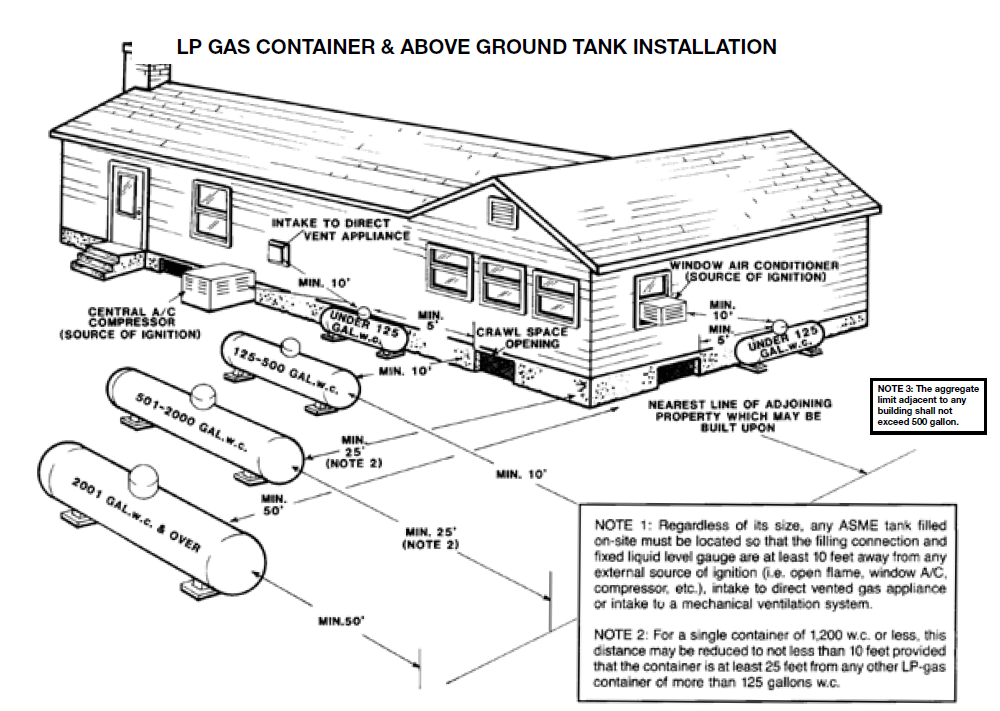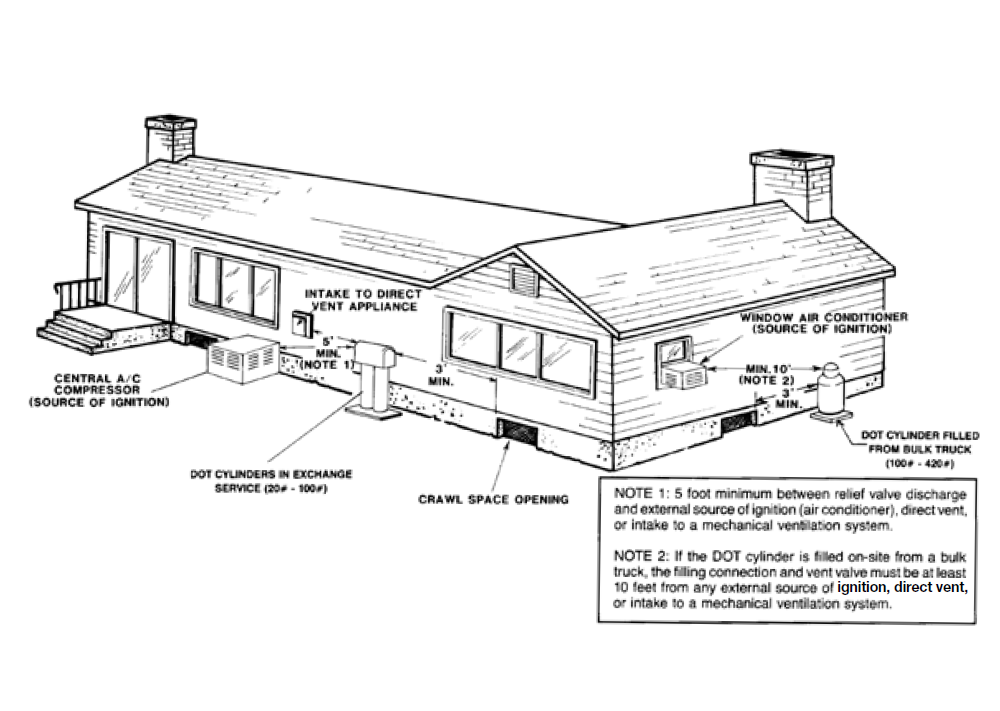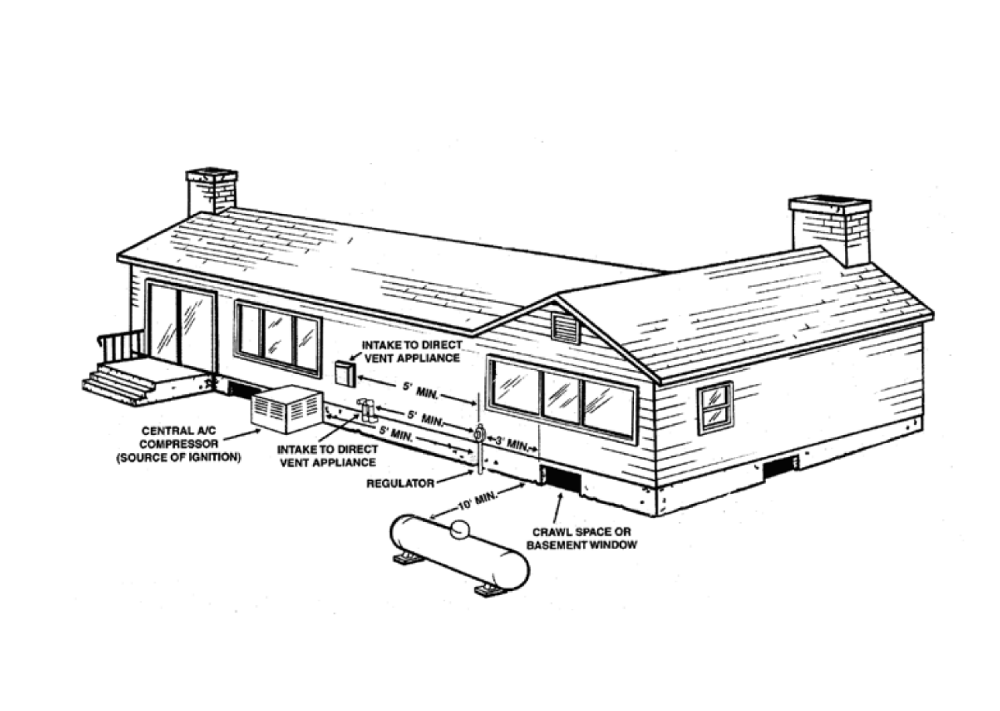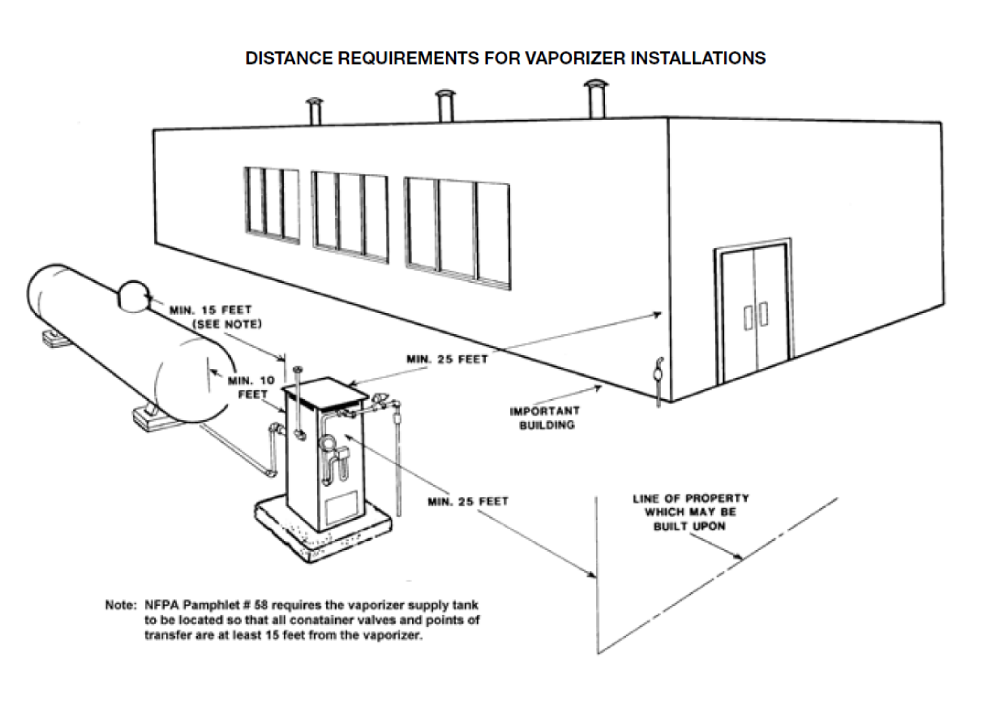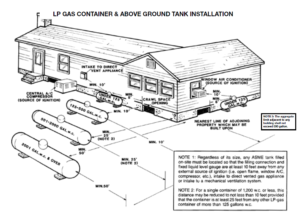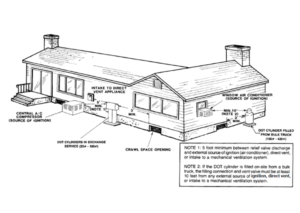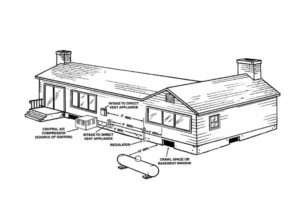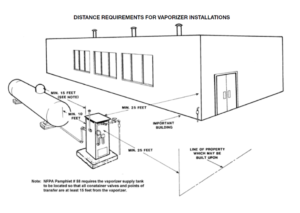Propane Safety
Distance Requirements
Propane Tank Distance Requirements
Propane tank distance requirements play a crucial role in ensuring safety and compliance with regulations. These rules govern the placement of propane tanks and their connections concerning nearby structures like houses or other propane tanks. When installing a propane tank, it is vital to consider the proximity of surrounding buildings, driveways, awnings, house or building openings, property lines, and other factors to ensure a legal and safe location. The distance requirements vary depending on the size of the LP Gas tank and whether it is an above-ground or underground tank. Typically, a ten-foot rule applies to most tanks concerning buildings and houses. However, specific standards and rules come into play when accounting for locations such as playgrounds, parking lots, railroad tracks, or other flammable materials. At Appomattox Propane Services, we prioritize safety and diligently adhere to all propane tank distance requirements when installing propane tanks in any location, giving our customers peace of mind.
*The images depicted to the right are intended to provide general information and recommendations for risk prevention. It should not be considered legal advice regarding your unique needs nor a guarantee of specific results. Qualified counsel should be sought regarding questions specific to your circumstances.
*The images depicted above are intended to provide general information and recommendations for risk prevention. It should not be considered legal advice regarding your unique needs nor a guarantee of specific results. Qualified counsel should be sought regarding questions specific to your circumstances.
Propane Safety Tips
Propane is a valuable energy source when handled and used safely. By following these propane safety tips, you can enjoy the benefits of propane while minimizing potential risks and hazards.
Click the Learn More button below for additional Consumer & Industry Propane Safety Information from the Propane.com website.
